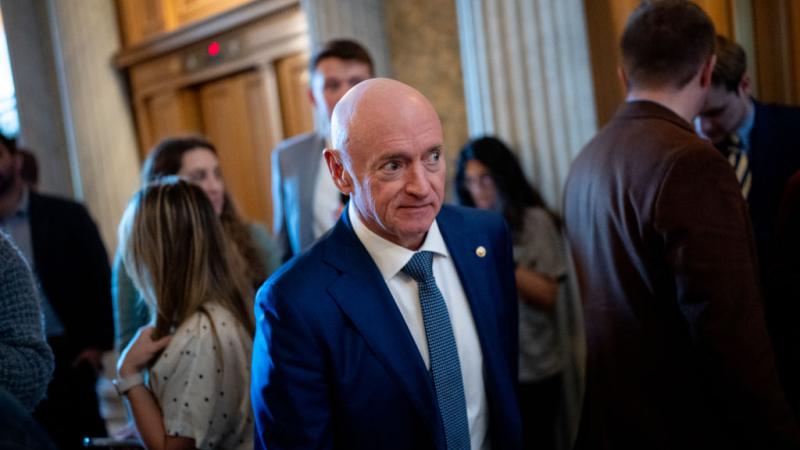Secretary of Education McMahon's grant priorities include returning to phonics, school choice,
In stark contrast to the previous administration's DEI-ladened grant programs and priorities, McMahon said Tuesday her three priorities for grants are focusing on literacy, school choice, and states’ freedom.
(The Center Square) -
In stark contrast to the previous administration's DEI-ladened grant programs and priorities, U.S. Secretary of Education Linda McMahon said Tuesday her three priorities for grants are focusing on literacy, school choice, and states’ freedom.
McMahon’s “first three proposed priorities” for the U.S. Department of Education discretionary grants include “evidence-based literacy, expanding education choice, and returning education to the states,” according to a news release.
“These will be used in grant competitions across the Department to address the urgent needs of our students, families, and states,” the release said.
The Department of Education did not immediately respond to The Center Square’s request for comment.
The priority of evidence-based literacy “will promote literacy instruction based on evidence to ensure that proven methods based in the science of reading will be used to help our students learn to read,” according to the release.
The release says that “the science of reading is a body of evidence-based research that proves the importance of providing direct, systematic, and explicit instruction based on phonological awareness, phonic decoding, vocabulary, fluency, and reading comprehension.”
The second priority “will be used to expand access to education choice across all applicable discretionary grant competitions.”
“This priority provides a ‘menu’ of options to choose from depending on a grant program’s purpose and goals,” according to the release.
Options on the menu include: “expansion of charters, innovative school models, K-12 open enrollment, dissemination of information on choice options, implementation of ESAs, home-based education, concurrent enrollment programs, career preparation, postsecondary distance education, skills-based education, apprenticeships, work-based learning, accelerated learning and tutoring, etc.”
Lastly, the priority of returning education to the states “will enable the Department to prioritize state applicants in competitions where they qualify as eligible entities or can endorse other types of entities.
This priority “will have the broadest applicability across grant programs.”
“It will serve as a powerful tool to re-envision existing programs, reduce administrative burdens at the Department, and demonstrate that states are best positioned to manage these programs,” the release stated.
Both expanded school choice and returning education to the states have been priorities in general of the department under Trump, as evidenced by its celebration of related accomplishments in its first 100 days, previously reported by The Center Square.
McMahon’s three grant priorities differ significantly from priorities under the Biden administration.
As the release explained, “under the Biden Administration, 4 out of 6 of the Secretary’s Supplemental Priorities advanced a discriminatory diversity, equity, and inclusion (DEI) Ideology.”
Many grant programs were infused “with divisive race stereotypes and even racial quotas,” according to the release.
Examples given by the department of such instances under Biden include “pushing student racial diversity through diversity plans, admissions policies, and technical assistance” and “focusing on diversity amongst educators instead of sound teacher preparation.”
Additionally, other examples, according to the department, are “embedding DEI in educational subjects and programs such as civics, STEM, and career and technical education,” “promoting social emotional learning,” and “supporting divisive school diversity and social justice policies.”
In the release announcing her priorities, McMahon said that “discretionary grants coming from the Department of Education will now be focused on meaningful learning and expanding choice, not divisive ideologies and unproven strategies.”
“It is critical that we immediately address this year’s dismal reading and math scores by getting back to the basics, expanding learning options, and making sure decisions in education are made closest to the child,” McMahon said.
McMahon expects to publish “additional priorities later this year,” the release said.















